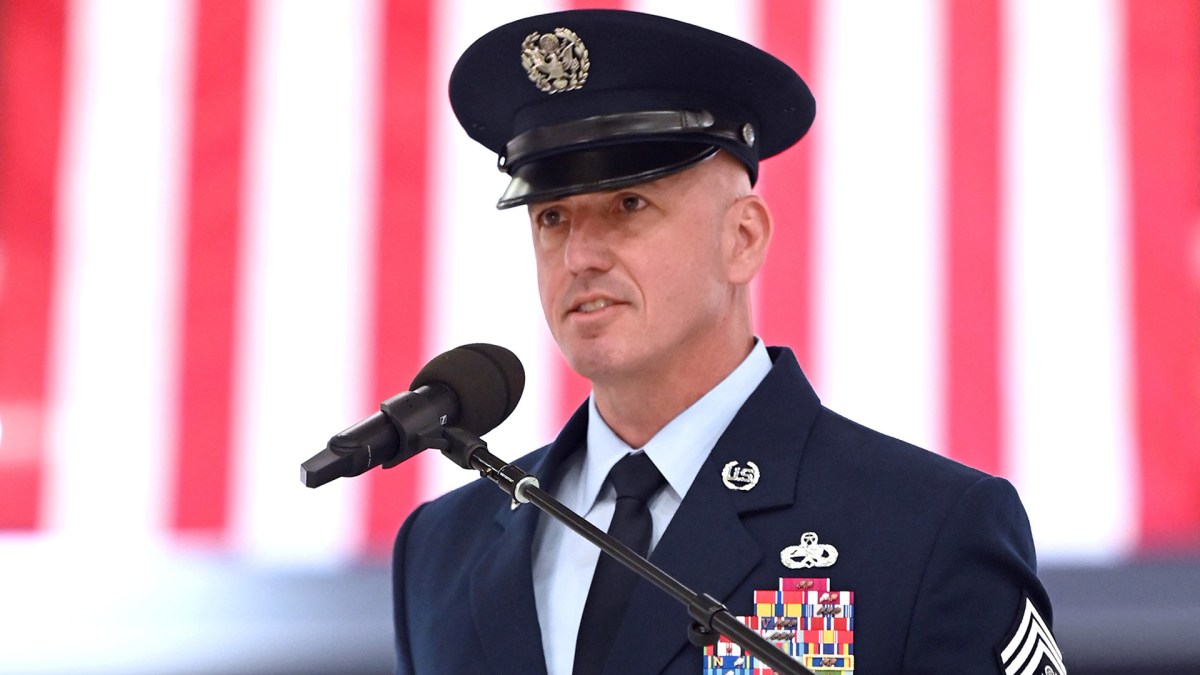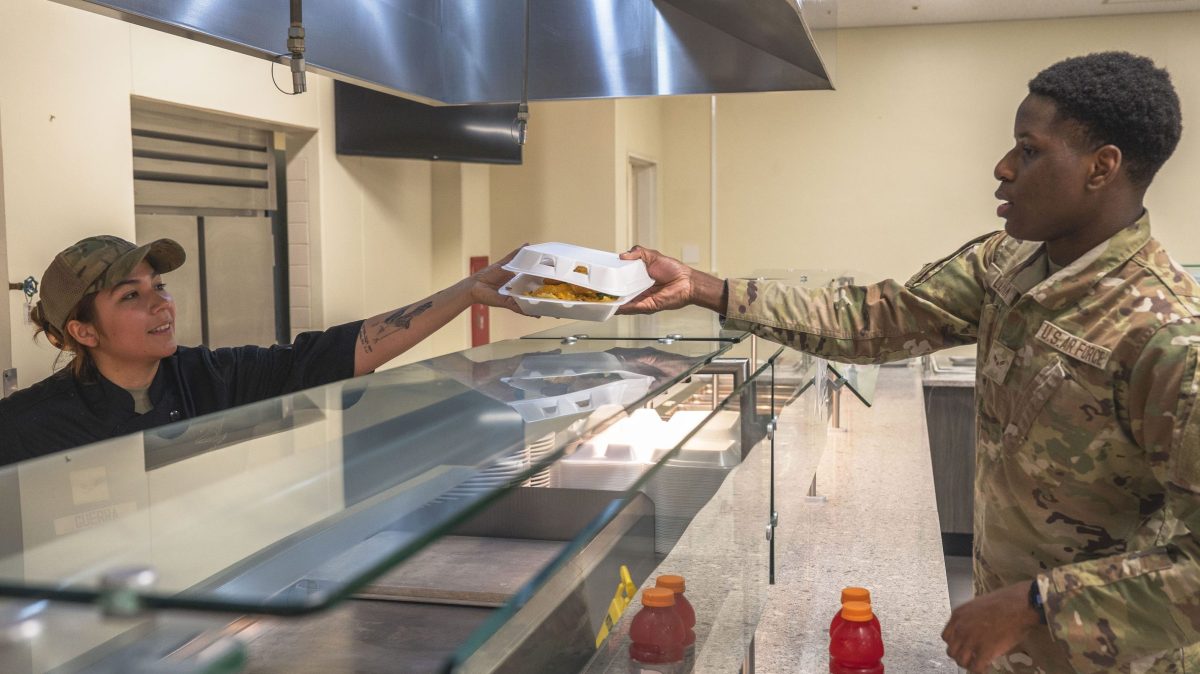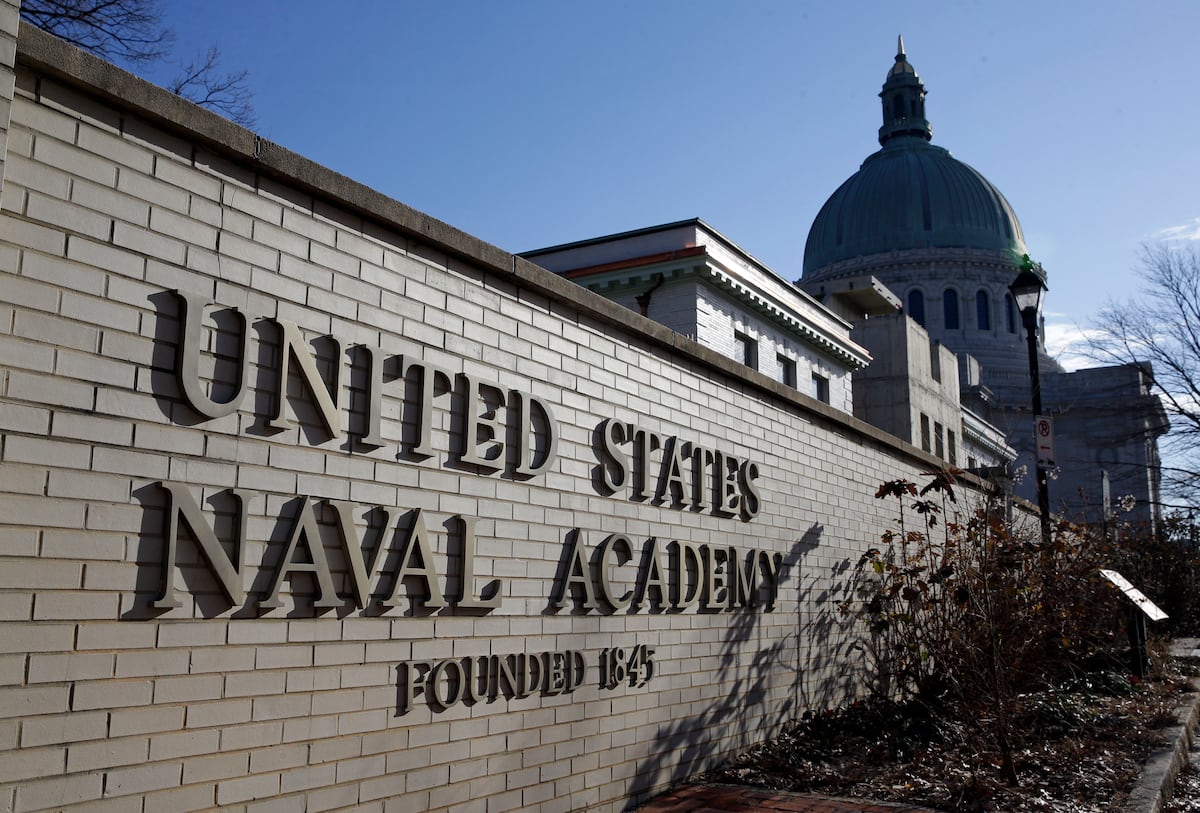
As a missed paycheck looms for military members, many are seeking emergency relief funds, including with military-friendly lender USAA. But some have been frustrated by credit checks and unexpected denials. Stacy Godfrey
Tens of thousands of service members, military families and other federal workers have rushed to apply for emergency financial assistance amid fears of missing a paycheck next week. That fear appeared almost certain to become reality after Congress adjourned Friday until Oct. 14, though President Donald Trump announced Saturday that funds might materialize to pay troops on Oct. 15, their usual payday.
But as uncertainty continues, several military-focused banks and relief societies say they have already extended millions of dollars in emergency relief cash and loans that many began heavily promoting last week. By far, the largest of those programs is run by USAA, the massive Texas-based financial institution which, for decades, has required its members to have ties to the military in order to join.
On Friday, USAA announced it approved tens of thousands of emergency loans totaling $144 million in just 48 hours. But online complaints have piled up that the company’s loan program requires a ‘hard’ credit check — which can negatively impact credit scores. Many active-duty troops who applied said they were surprised to be rejected, leaving them with one less option for relief and a dinged credit score.
Multiple service members told Task & Purpose their USAA applications were denied despite having apparently healthy credit histories. The rejections were particularly surprising, some said, because they had been USAA members for several years and had requested less than the full $6,000 loan the bank was offering.
A USAA official acknowledged that the program requires a hard credit check and that some percentage of applicants were turned down because they were either not eligible for the loan or did not qualify under the company’s lending rules.
“We’re going out of our way to really take care of as many people as possible,” said Daniel Diaz, a USAA spokesperson.
Diaz said late Friday the bank’s tally of approved loans had grown to 50,000, totaling $189 million. “I know it’s not perfect, but we are doing our best, and that’s not something to scoff at.”
Facing weeks without pay
Troops interviewed for this story were granted anonymity to speak candidly about their financial situations. Several said they were worried about missing their next pay while trying to figure out options for rent, utilities, food, day-to-day expenses, supporting their families, or avoid dipping into savings.
“For at least the next month, I know for sure I’m going to have a roof over my head. I know for sure the lights are going to stay on, and I know for sure I’m going to have a way to and from work,” said an Army specialist, who said he was twice denied a USAA loan this week and is living on the last paycheck from Oct. 1, the day of the shutdown. But with a water bill looming, he is now waiting for assistance from an Army relief foundation he applied to after being denied by USAA. Should the shutdown drag on, he said, “it’s going to get scary for myself” and other troops.
Amid the scramble for financial relief, multiple troops did not let the federal government off the hook for its failure to fund something as essential as military paychecks after days of congressional bickering over the shutdown.
“We do the service that’s asked of us and to not get paid feels like a slap in the face,” the specialist said. “It’s a slap in the face that Congress can get paid, continue to get paid, through all of this process, but the people that are charged with protecting them and their ideas – we don’t get paid.”
While Diaz said USAA had approved more than 50,000 loans, he would not disclose how many total applications the bank has received, making it unclear how many have been rejected in total. He said “most of the applications” have been approved.
“We probably haven’t done the best part in communicating what we offer and why. I wish that we would have done more, but we’re doing more now to share the differences, the explanations between these different products, how they work and why,” Diaz said. “While I would understand that some of this chatter is warranted – and I certainly don’t want to gloss over people’s frustrations, I hear that, we hear that, we’re trying to do our best – there’s a lot that’s happening.”
Credit worries with a ‘hard’ check
Many complaints centered around USAA’s requirement in their loan application for a “hard” credit check, a formal request for a credit review that a bank or lender makes when a person applies for a loan. Hard checks can impact a person’s credit score, while a soft check — commonly used for general background checks, like when applying for a job — do not impact credit scores.
Diaz confirmed the hard check requirement in the USAA program. Service members who spoke to Task & Purpose and were denied a loan lamented that the hard check would now likely impact their credit scores without having received financial assistance.
A spokesperson for Navy Federal Credit Union, another military-centric bank that is offering emergency loans amid the shutdown, told Task & Purpose it is not obtaining or reporting such credit information for its shutdown loan program. The spokesperson did not disclose how many emergency loan requests it received or approved during this shutdown, but said that “we’re seeing a significant uptick in participation in our paycheck assistance program, which we believe reflects the uncertainty many are feeling about a timely resolution to the ongoing shutdown.”
Diaz said the USAA program has different requirements because it is a traditional loan.
Top Stories This Week
“I can’t get into the specifics of why a hard versus a soft [check],” Diaz said, but emphasized that the USAA program is not a payday advance but a loan with a 60 to 90 day window for repayment. Payday or “paycheck assistance” loans are immediately “clawed back” by the bank when a paycheck eventually arrives, and therefore might not require a hard credit check. The Navy Federal Government Shutdown Loan Program is set up under those terms.
But the USAA loan, Diaz said, is not tied to a service member’s paycheck and instead allows for an extended repayment schedule.
“The reason we offer that is because that allows us to offer greater flexibility when it comes to repayment terms,” Diaz said.
Both the USAA and Navy Federal emergency loans are offered with no interest.
Strange ‘chat’ advice
The Army specialist – who is a new father and has been a USAA customer for years – said that after his second denial from USAA, he sought an explanation via the bank’s online chat feature. He received messages from a chat bot offering to waive or refund overdraft fees if a check failed to clear.
“Not ideal although helpful,” the USAA message said, according to screenshots of the chat. It then recommended he look into opening a USAA credit card. It also asked if the soldier was able to open an account with the Navy Federal.
The replies were frustrating, the soldier said. Eventually, he received a message about his loan denial which said USAA’s decision was based on “serious delinquency” on revolving credit accounts and credit cards. The soldier said he had one delinquency on his Star Card, but none others, and has two car loans for his family, on which he makes his payments regularly.
“I was given alternatives to assist me through this shutdown, but the ‘fixes’ were to either overdraft my account or apply for a USAA credit card,” he told Task & Purpose. “Both of these options would see a situation where USAA would be directly profiting off of soldiers who are not getting paid. This feels problematic to me.”
Diaz told Task & Purpose that responses from chatbots are “highly dependent on a situation,” as well as prompts and keywords. Its goal is to find the best solution based on member requests, he said, but also that “credit cards are absolutely not a part of USAA’s government shutdown program, and the loan and payment relief offerings will always be the first and primary options given.”
Eligibility requirements may hinder some
Diaz said that many who applied for loans were, perhaps unknowingly, not actually eligible for the program, regardless of their financial history or other qualifications.
“There’s a difference between approval, rejection and eligibility,” he said, “and what we’re finding is, in some of these cases, it has to do with eligibility more than anything else.”
Diaz said that applicants need to have established direct deposit with a USAA checking or savings account for 30 days before the shutdown. He also said that if members were having issues getting approved via the online system, they could call USAA’s toll-free number.
 Soldiers from 25th Infantry Division Artillery tackle an obstacle during a 36-hour “This is my squad” event. Photo by Sgt. Jessica Scott
Soldiers from 25th Infantry Division Artillery tackle an obstacle during a 36-hour “This is my squad” event. Photo by Sgt. Jessica ScottHigh credit score but no loan
For those who are eligible to apply, Diaz said USAA reviews their individual applications using typical payment history and credit score information. He did not specify USAA’s specific credit score cutoffs or other criteria, citing “proprietary” information.
“Everyone’s situation is unique and there’s a number of different factors,” Diaz said.
One prior-enlisted Army officer, who said his credit score is in the 750s, reported that he applied for a USAA loan in the amount of a single paycheck for fear of having to dip into his savings, but was denied. His payment history and credit card usage are “excellent,” according to a credit report he provided to Task & Purpose, with no derogatory marks.
The only “low impact” items on the report were a credit history of under three years and owning just two total financial accounts. Credit services reward higher levels of financial activity — such as buying and spending with credit cards or loans — with higher credit scores because it establishes a pattern of paying off debts.
In its rejection of his loan application, USAA cited insufficient credit history, length of time his account has been established, amount owed on revolving accounts and “proportion of balances to credit limits.”
“I’m good until the end of the month, I can pay for rent this month,” he said. “If it goes longer, say to the end of November, I’ll have to take out of my savings account to pay for rent and utilities.”
Unpaid expenses after a move
A National Guard warrant officer who is on full-time orders told Task & Purpose that he applied for a $4,500 loan from USAA. He recently changed duty stations, paying thousands in out-of-pocket expenses during the move, expecting to be paid back quickly through typical military finance channels. Now, he said, he doesn’t expect to get the money until after the shutdown, prompting his USAA application.
 Congressional leaders confirmed last week that Congress will be closed at least until Oct. 14, the day before military paychecks are due. Army photo by Staff Sgt. Andre Taylor
Congressional leaders confirmed last week that Congress will be closed at least until Oct. 14, the day before military paychecks are due. Army photo by Staff Sgt. Andre Taylor“I can afford to miss the October 15th paycheck, but if I missed the November 1st paycheck, it would affect me pretty heavily,” he said, noting his credit score is in the 790s. He said that USAA changed his status from National Guard to active-duty to reflect his orders, but still denied his application because of a car loan with more than $10,000 in remaining balance. He said he has paid the loan consistently, often beyond the minimum monthly payments.
With his moving expenses still unpaid, he said, “I have enough money to pay rent and groceries for November, but I’d be left with nothing.”
Older troops worry about junior enlisted members
Despite issues highlighted on social media, USAA’s relief program is the largest of several lenders and charities that troops say they are turning to — but its unclear how large the need may soon grow.
Some service members said they had applied or were considering applying for loans through emergency relief societies such as the Army Emergency Relief program. Task & Purpose reported on Thursday that such groups – which serve each of the branches – have received a surge in the number of requests for cash relief amid the shutdown. An AER spokesperson told Task & Purpose the traffic to its online application had been high enough to slow its website earlier in the week, but the page was back up by Thursday afternoon.
Troops also told Task & Purpose that they were concerned for junior enlisted service members, who may have no or little credit histories or savings, and those with families or who are single parents. Some said that their own leadership has stepped up to ensure they were getting enrolled in programs like AER.
“I once was junior enlisted and still didn’t have many expenses then and still felt like I was hardly making anything, so I can’t imagine those that have families,” the warrant officer said. “Junior enlisted with families are definitely living paycheck to paycheck and withholding pay from them isn’t right.”
An annual report from the Department of Defense in 2023 showed that even outside of a shutdown, service members reported a significant decline in financial comfort in recent years. As of 2024, more than 20% of active-duty troop spouses faced unemployment, meaning many families rely on a military paycheck as a single source of income. CNN reported Wednesday that families were already struggling with the shutdown.
Fewer than one in three military families have $3,000 in savings, CNN reported citing the nonprofit Blue Star Families, and that nearly a quarter face food insecurity.
Congress remained deadlocked on Friday over reopening the government and it was becoming increasingly likely that troops will miss next week’s paycheck. Speaker Mike Johnson (R-La.) had received intense scrutiny to call the House back in session to vote on a stand-alone act to turn on troop pay amid the shutdown after saying Democrats would be to blame if service members missed next week’s paycheck.
On Friday, the GOP-led House rejected a push from Democrats to vote on that stand-alone measure. The Hill reported Friday that Johnson and Trump are “working on ways” to pay service members, even if it means sidestepping Congress. Those discussions appeared to come to fruition after Trump said he directed Defense Secretary Pete Hegseth to “use all available funds to get our Troops PAID on October 15th,” in a social media post.
Still, troops and their family members rushed for loans and waited in lines at food banks in anticipation of a missed paycheck. Multiple service members said they were frustrated with the partisan grandstanding over their paychecks. The warrant officer said that “what’s happening to service members isn’t right whatsoever and the government is using us as political leverage against each other.”

Task & Purpose Video
Each week on Tuesdays and Fridays our team will bring you analysis of military tech, tactics, and doctrine.

.jpeg)






















.jpeg)













 English (US) ·
English (US) ·